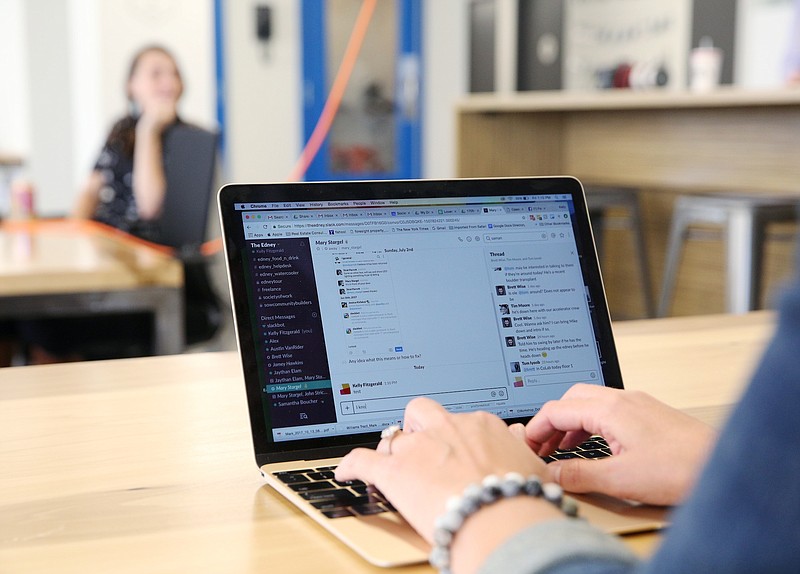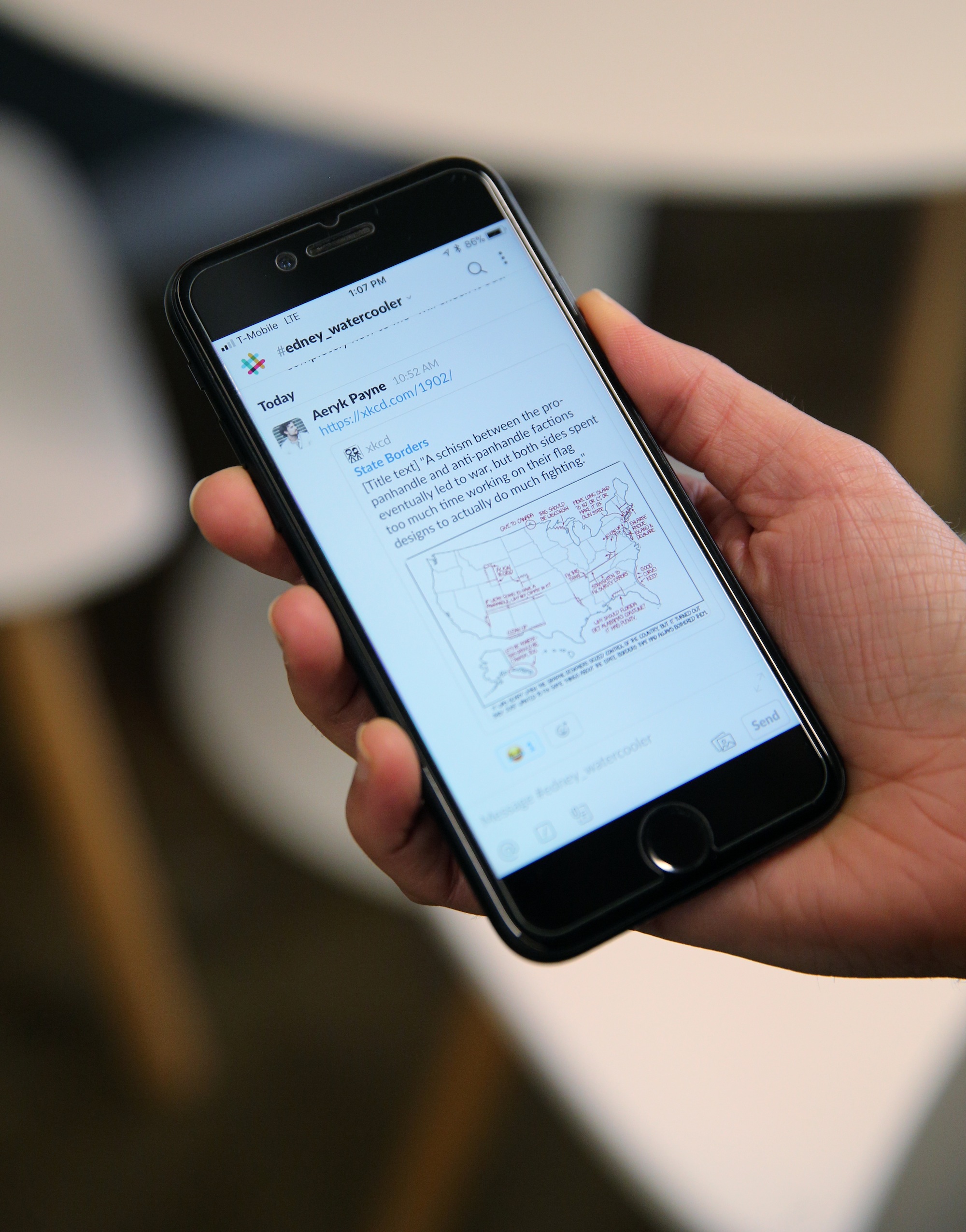When The Edney Innovation Center opened its startup-centered workspace downtown two years ago, the building's facilitators knew they would need more than a water cooler to bring people together.
The building would be home to dozens of different entrepreneurs and enterprises operating on different schedules, with varying company cultures. But the Edney's leaders still wanted to foster a close-knit community, a support system for its tenants.
"We wanted conversations that started inside the building to carry on outside of it," said Mary Stargel, the Edney's program manager.
The building needed some kind of central hub. Email wasn't ideal: messages would get buried, and a master contacts list would become too unwieldy. Building-wide meetings would only go so far, since tenants worked in widely different time-frames.
The organization decided to adopt Slack, a messaging app that allows team members to carry on a variety of group and individual conversations via different "channels" - essentially, chat rooms devoted to different projects or topics of conversation.
Slack group, which now has around 250 members, crackles with conversation. The "Announcements" channel carries all-building updates like electrical maintenance or an evening happy hour. "Job Board" is where companies share openings. There's even a "Water Cooler" - the spot for posting interesting articles and local buzz. Then there's the building's most popular channel, "Food and Drink," where tenants alert one another to leftover pizza on the fifth floor, or pupusas on the 6th. For a while, a button was set up in the kitchen that could ping the entire Slack group whenever fresh coffee was brewed.
"We're 70 different companies all trying to do our jobs, but we're also trying to build community," says Stargel. "Slack brings all of those people together in one place. It assists in problem-solving and information-sharing, but also in building personal connection."
As the number of cloud-based communication and project management tools continues to grow, many Chattanooga-area companies are changing the ways they take care of business.
Some of the recently-developed platforms focus on company-wide communication, such as Slack and Facebook's new enterprise-focused app, Workplace.
Other apps, such as Asana, Basecamp, and Wrike, aim to improve work flow by helping team members keep tabs on assignments through each stage of development. Think a column for "Leads," one for "Follow-up Meetings," and one for "Contracts Drawn Up"- or any such trajectory, with customizable checklists for each team member.
By embracing such platforms, companies hope to work smarter: to relieve the overburdened email inbox, erase whiteboards full of unchecked checklists, demystify deadlines, and slow the merry-go-round of meetings.
Digital agency VaynerMedia, which has a Chattanooga office, started using Slack in late 2015 for day-to-day communication across all of its offices, in an effort to reduce the amount of back-and-forth email threads. But the impact has reached beyond the inbox, according to Ben Benrubi, VaynerMedia's director of partnerships.
"It has also encouraged people to proactively share more ideas and industry news within relevant Slack channels," Benrubi says.
Some VaynerMedia departments and teams also use tools like Trello and MeisterTask, other project management applications. The step-by-step overview provided by such apps allows VaynerMedia teams to "more collaboratively, and in turn efficiently, manage and execute projects," says Benrubi.
The platforms also allow for more visual communication, integrating documents, images, videos and data sets more seamlessly than traditional email.
The ability to analyze charts and schedules in real time render these apps especially useful for planning large-scale campaigns and events, says Sybil Topel, vice president of marketing and communications at the Chattanooga Chamber of Commerce, which recently adopted Asana - another collaborative platform.
"You can organize by project, or by event," says Topel, who compared it to software she used in her architecture background, which kept designers and subcontractors on the same page during prolonged builds. "It has really helped us work interdepartmentally, and to work visually."
Digital ties that bind
For some companies, the decision to use a collaborative platform has less to do with productivity, and more to do with personal connection.
When trucking company Covenant Transportation Group decided to replace its 10-year-old company intranet system earlier this year, the chief goal was to close the distance. With 950 employees spread across the country, fostering a unified sense of culture and community was a major undertaking.
"We looked at our employee satisfaction surveys and saw we were scoring lower on communication," says Rob Hatchett, Covenant's vice president of communications and recruiting. "We just thought - we're in an era where we have email, we have intranet, we have text message - but we're missing something."
Around that time, Facebook was rolling out Workplace, its network designed for company communication. It seemed like a good fit for Covenant: most employees were already on Facebook, and it was mobile.
Several months into its adoption, Hatchett says the app has been a hit. It allows for live updates, like the CEO making an announcement, or a livestream of employees packaging up gloves as a gift for truck drivers during Driver Appreciation Week.
It also features a range of subgroups: an online yard sale; groups for sports teams; a group for prank ideas; a group for the company's discount program; and a group for prayer requests.
"It may be little stuff - but that's community," says Hatchett. "We have so many different people in different departments and different locations who never see each other, but we see each other there."

